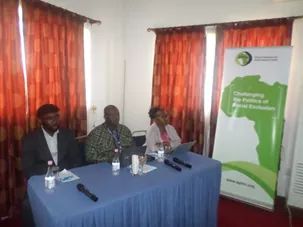Statistics Sierra Leone in partnership with African Population and Health Research Center (APHRC) will undertake a study which seeks to discover the costs of unsafe abortion in Sierra Leone.
This disclosure was made during a one day workshop held on Tuesday March 17, 2020, at the Golden Tulip Kimbima Hotel in Freetown under a project titled: “Challenging the Politics of Social Exclusion (CPSE)”, which statistics Sierra Leone is currently implementing in Partnership with APHRC. The Project is being funded by the Swedish International Development Agency (SIDA).
The research hopes to generate data which gives evidence on the incidence of abortion in the public health system and household level nationwide.
The objective of the survey is to determine the incidence of induced abortions; the magnitude of its clinical severity and the level of complications from unsafe abortion; to explore women’s experience of seeking or obtaining abortion as well as their motivations and reasons for using a particular abortion service; and also to estimate the personnel, supplies and medication required by health facilities in the country.
Deputy Statistician General, Andrew Bob Jonny, said that the study would also determine the impact of utilization of scarce financial resources at household levels for the treatment of abortion complications and strategies used by families to manage the cost of abortion.
He added that the research would explore some of the non-financial costs of unsafe abortion which include fertility, stigma and psychological distress and abortion care seeking practices and the capacity of the health system in Sierra Leone.
“The expected outcomes from the survey would provide policymakers and program implementers with a clear and compelling rationale to legislate, to provide a roadmap, to invest scare resources meaningfully in the country,” he said.
Boniface Ushie, Research Scientist of APHRC, stated that the CPSE project is geared towards providing evidence to help address barriers, to positively change reproductive health services and to ensure supportive environments for all adolescents, young people and women seeking safe abortion and post abortion care.
“The aim of the CPSE project is to act as a critical and neutral knowledge partner to the constellation of actors advocating for the full domestication and implementation of continental commitments on the sexual and reproductive health,” he said.
He cited that the World Health Organization’s Health Report of 2012, which shows that restricting legal access to abortion does not decrease the need for abortion, but it is likely to increase the number of women seeking illegal and unsafe abortion leading to increased morbidity and mortality.
He mentioned that 10 percent of maternal deaths are attributed to complication from unsafe abortion with a high abortion case-fatality rate of 17.3 percent.
The African Population and Health Center (APHRC) is an Africa based research institute. The center is committed to generating an Africa -owned body of region-wide evidence to inform decision making to advance effective and sustainable responses to the most critical challenges facing the continent. APHRC’s headquarter is in Nairobi (Kenya), and it also has offices in Senegal and presently works in over 30 sub-Sahara countries.




 Post a comment
Post a comment









Comment(s)
Disclaimer: Comments expressed here do not reflect the opinions of Sierraloaded or any employee thereof.
Be the first to comment